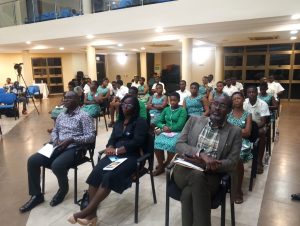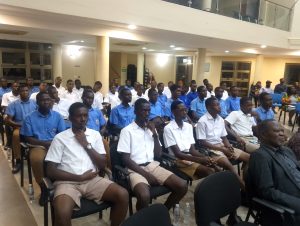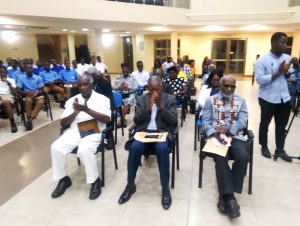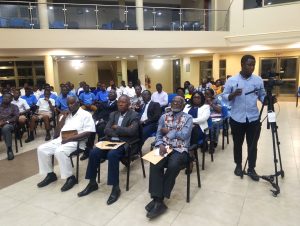Renowned lawyer and leading member of pressure group OccupyGhana, Ace Ankomah, has advocated for the establishment of a one-stop Natural Resources Commission through an act of Parliament as a comprehensive solution to Ghana’s deepening illegal mining (galamsey) crisis.
His call was made during a keynote address at a three-day public forum on galamsey organised by the Ghana Academy of Arts and Sciences (GAAS) from June 2 to June 4, 2025. The event, themed “Galamsey Revisited”, brought together academics, policymakers, researchers, students, and journalists to reflect on the growing environmental and socio-political implications of illegal mining.
Addressing participants, Mr. Ankomah noted that the current fragmentation of regulatory authority across agencies such as the Minerals Commission, Lands Commission, Forestry Commission, and the Environmental Protection Agency (EPA) has created loopholes that illegal miners exploit.
“When it comes to mineral resource governance, multiple regulatory bodies are involved in the licensing process. This makes it easier for people to circumvent the system,” he said.
“These laborious and overlapping processes, coupled with underfunding, staff constraints, and weak enforcement, have rendered supervision largely ineffective. To address this, Parliament must consider a law that collapses these agencies into a single Natural Resources Commission to streamline operations and strengthen enforcement.”
Flawed Legislative Framework
Ace Ankomah also criticised Legislative Instrument (LI) 2462, arguing that it contravenes constitutional provisions by allowing the President or Minister of Lands and Natural Resources to grant mining licenses, rather than the regulatory agencies mandated by law.
“Article 268 and 269 of the 1992 Constitution clearly vest the authority to grant mining rights in commissions such as the Minerals Commission. However, this LI purports to empower the President to grant leases—an overreach that undermines constitutional order,” he stated.
He described the LI as “bizarre” and called for its immediate repeal, insisting that only Parliament has the authority to ratify mining leases following due process.
“A look at data from 2017 reveals that a significant number of small-scale mining leases were hurriedly granted and ratified in 2020 under questionable legal circumstances. Such actions are in breach of the Constitution and render these leases null and void,” he asserted.
Call for Independent Prosecution
Beyond regulatory reform, Mr. Ankomah addressed the need for institutional independence in the prosecution of galamsey-related crimes. He proposed the separation of the roles of Attorney General and Minister of Justice, citing the 1969 Constitution as a model.
“We must ensure prosecutorial decisions, especially in high-stakes areas like illegal mining, are insulated from political control. The current system, where the Attorney General is also a Cabinet Minister, compromises the independence required to prosecute offences that may implicate government officials,” he said.
“Returning to a model where the Attorney General operates outside the Cabinet will ensure accountability, impartiality, and respect for the rule of law.”
Mr. Ankomah’s remarks have added renewed urgency to the national debate on illegal mining, which continues to ravage Ghana’s water bodies, forests, and agricultural lands despite years of interventions. Many observers see his proposals as a pragmatic blueprint for reforming Ghana’s natural resource governance architecture and ensuring sustainable development.
Story by: Sika Tagoe | univers.ug.edu.gh
Edited by: Sika Tagoe









